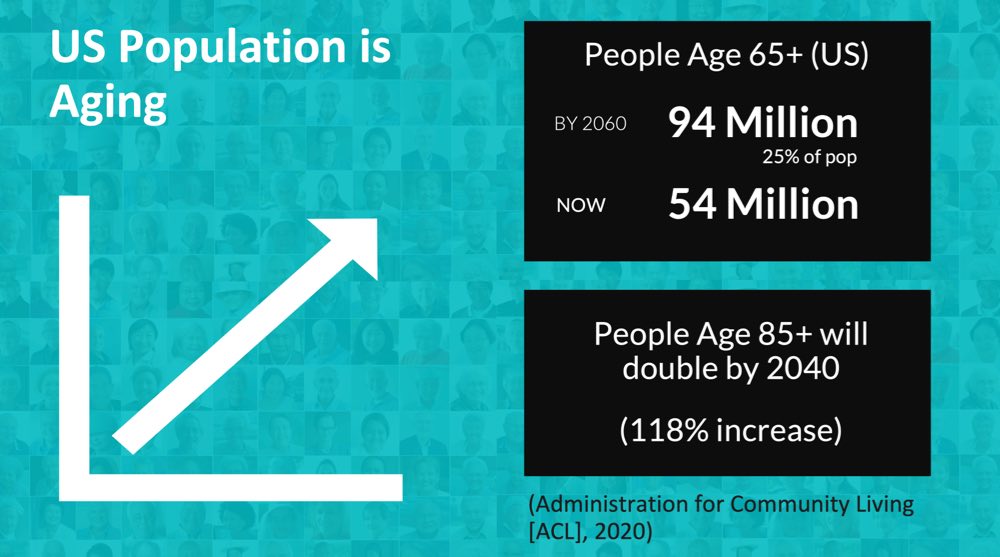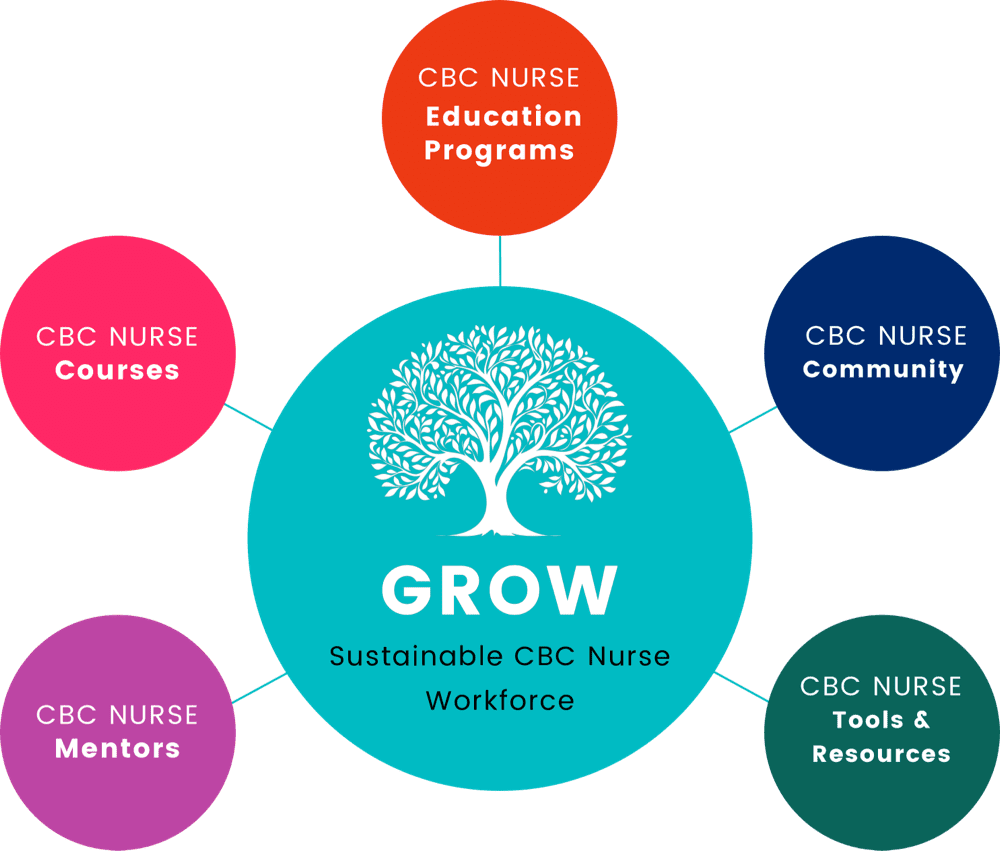Educators, Advocates, and Innovators: Community-Based Care Nursing – Then and Now

Among healthcare professions, few sectors have experienced as dynamic an evolution as community-based care (CBC) nursing. Historically overshadowed by the more conventional, hospital-centric nursing roles, community-based care has, over the past few decades, emerged from the periphery into the spotlight. This shift recognizes not only the practical demands of an aging population and those with chronic conditions but also a broader, more holistic understanding of health that encompasses physical, psychological, social, and environmental factors.
Current demographic data indicate a growing aging population in the U.S., illuminating a current and future need for the specialized care knowledge found within CBC nursing. Yet, the community-based care nursing workforce faces challenges such as workforce shortages, lack of specialty training, and, general overwhelm that make it difficult and often impossible to provide adequate care to this population.

During the global pandemic, the World Health Organization declared 2020 the Year of the Nurse and the Midwife, underscoring the centrality of nursing in community health (WHO, 2020). The work of community-based care nurses was critical in managing the pandemic. From providing continuous resident care to administering vaccines, engaging in public health education, facilitating contact tracing, and more, this sector provided life-saving care while also keeping our communities safe.
CBC Nursing has Evolved
Community-based care nursing predates the formal healthcare system, originating as a neighborly duty to care for those nearby. However, the 20th century saw a marked shift in focus toward hospital-based care, supported by advances in medical technology and pharmacology (Maier, Aiken, & Busse, 2017). The pendulum has begun to swing back due to escalating healthcare costs, hospital overcrowding, and a growing preference for care within the comfort and familiarity of one’s community or home.
As illuminated by the pandemic, today’s community-based care nurses operate at the intersection of traditional healthcare, social work, and public health. They engage not just with residents, but their families and the broader community, requiring a skill set that extends beyond clinical knowledge to include cultural competency, communication, advocacy, and resourcefulness.
However, this transformation hasn’t been without challenges. Community-based care nurses often work in isolation without the immediate support system found within hospital settings. They encounter diverse resident populations with complex needs and navigate care delivery within residents’ living spaces, demanding heightened sensitivity and adaptability. Enter NurseLearn, a resource hub and education program designed to bridge the training gap for nurses working in, or interested, in community-based care by providing training and mentorship.
NurseLearn’s Community-Based Care Education Programs
NurseLearn’s Enhanced Program is designed to prepare nurses for the rigors and rewards of modern community-based care, offering guidance, mentorship, and a community of peers. The Program curriculum recognizes that today’s community-based care nurses are not just health providers; they’re also educators, advocates, and innovators. With courses covering clinical skills, systems and team management, legal and ethical considerations, and the social determinants of health, our program is designed to prepare nurses for the multifaceted and specialized needs within community-based care.
One standout feature of the Enhanced Program is our emphasis on supporting community-based care nurses with experienced Nurse Mentors. Recognizing the isolating nature of community-based nursing, our Nurse Mentors make up a robust network of experienced community-based care professionals who offer real-world guidance, share insights, and help troubleshoot challenges.
A Flexible Self-Paced Program for Today’s Busy Nurses

The NurseLearn Community-Based Care Nurse Education and Support Program offers flexibility for participants, recognizing that nurses are balancing full schedules between their professional and personal lives. Our courses are accessible around the clock, allowing for self-paced learning, and our CBC Nurse Connect community provides a platform for ongoing peer interactions where participants can share experiences and build connections with fellow community-based care nurses. As CBC settings become more diverse and as healthcare systems continue to evolve, CBC nursing will require a unique blend of knowledge, passion, and resilience.
Embrace the evolution of this specialty with NurseLearn’s Enhanced Program, featuring CBC nurse mentorship, and be the nurse who makes a world of difference, one community and person at a time.
Launching March 1, 2024. Free to all Oregon Licensed Nurses. Applications open December 1, 2023. Sign up for more information at nurselearn.com.
References:
- Maier, C. B., Aiken, L. H., & Busse, R. (2017). Nurses in advanced roles in primary care: Policy levers for implementation. OECD Health Working Papers, No. 98, OECD Publishing, Paris. http://dx.doi.org/10.1787/a8756593-en
- World Health Organization (WHO). (2020). Year of the Nurse and the Midwife 2020. https://www.who.int/publications/i/item/9789240003279
- Zimmerman S, Carder P, Schwartz L, Silbersack J, Temkin-Greener H, Thomas KS, Ward K, Jenkens R, Jensen L, Johnson AC, Johnson J, Johnston T, Kaes L, Katz P, Klinger JH, Lieblich C, Mace B, O’Neil K, Pace DD, Scales K, Stone RI, Thomas S, Williams PJ, Williams KB. The Imperative to Reimagine Assisted Living. J Am Med Dir Assoc. 2022 Feb;23(2):225-234. doi: 10.1016/j.jamda.2021.12.004. Epub 2021 Dec 31. PMID: 34979136; PMCID: PMC8826534.







